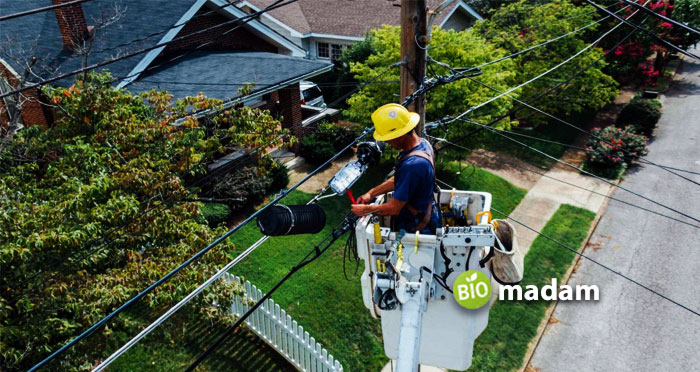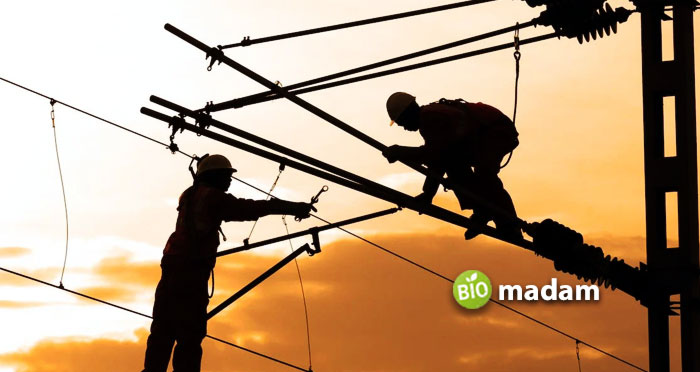Choosing the right energy supplier is a critical decision that can significantly impact your household or business. From cost savings to greener options, the benefits of switching energy suppliers are numerous. In this blog, we’ll explore the warning signs that indicate it’s time to consider making a switch. By identifying these signs and proactively exploring alternative energy providers, you can optimize your energy costs and overall service experience.
Rising Energy Costs and Bills
As energy costs continue to increase, many consumers are feeling the impact on their monthly bills. One of the most evident warning signs that it’s time to switch your energy supplier is the continuous increase in energy costs and bills. If your monthly bills have been steadily climbing, it’s essential to investigate the reasons behind these frequent and unexplained increases.
One contributing factor to rising energy costs is the fluctuating prices of natural resources, such as oil and gas, which often drive electricity rates. Additionally, changes in supply and demand, geopolitical events, and weather patterns can all influence energy prices.
To address rising energy costs, consumers can take proactive steps to optimize their energy usage and explore alternative energy providers with more competitive rates. Working with the electricity marketplace team at https://www.gridhacker.com/texas/houston-electricity-rates can be a valuable resource for comparing electricity rates in Texas and finding the best deals for consumers in the Houston area. They can help you compare your current energy rates with market prices to see if you’re paying more than you should. In many cases, customers find that they can achieve substantial savings by switching to a more affordable energy plan.
Poor Customer Service Experience
Poor customer service experience with an energy supplier can be frustrating and detrimental to a consumer’s overall satisfaction with their energy service. Common signs of poor customer service include long wait times, unresponsive support, and billing errors. Such issues can lead to delays in resolving problems and leave customers feeling unheard and dissatisfied.

In the energy industry, where timely communication is essential for addressing billing discrepancies, metering issues, or service interruptions, poor customer service can exacerbate problems and cause unnecessary stress for consumers. It may also result in a lack of trust and loyalty towards the energy provider.
To avoid poor customer service experiences, consumers can research and choose energy suppliers with a reputation for excellent customer support and responsiveness. Reading reviews and seeking recommendations from other customers can help identify reliable providers. Additionally, energy suppliers with dedicated customer service teams and multiple contact channels, such as phone, email, and live chat, are more likely to provide satisfactory assistance when issues arise.
Contract and Tariff Changes
Contract and tariff changes by energy suppliers can have a significant impact on consumers’ energy costs and overall experience. When energy suppliers modify the terms and conditions of existing contracts, customers may face unexpected adjustments to their energy rates, billing structures, or additional fees.
Sudden tariff changes can lead to cost increases and financial strain for consumers who were previously on a stable and predictable rate plan. Hidden fees or unclear terms in the revised contract can cause confusion and frustration, leaving customers feeling misled or trapped in unfavorable agreements.
Consumers should carefully review their current energy contracts and stay informed about any proposed modifications to protect themselves from unfavorable contract and tariff changes. If dissatisfied with the changes, consumers have the option to explore alternative energy providers with transparent and competitive pricing structures.
Limited Renewable Energy Options
Limited renewable energy options provided by energy suppliers can hinder progress towards a sustainable future. As the world faces pressing environmental challenges, transitioning to renewable energy sources is becoming increasingly vital.
For consumers who are passionate about reducing their carbon footprint and supporting clean energy initiatives, a lack of renewable energy options from their current supplier can be disappointing. It restricts their ability to actively contribute to environmental conservation and may leave them feeling unsatisfied with their energy choices.
Consumers can actively seek alternative energy suppliers to address limited renewable energy options that prioritize and offer greener energy plans. Many providers now offer renewable energy options such as solar, wind, and hydroelectric power. By making a switch, consumers can align their energy consumption with their environmental values and contribute to the larger goal of sustainable energy production.
Encouraging the growth of renewable energy options in the energy marketplace is crucial for a greener and more sustainable future. As consumer demand for clean energy rises, it incentivizes energy suppliers to invest in renewable energy infrastructure and expand their eco-friendly offerings. By supporting providers that prioritize renewable energy, consumers can actively drive positive change in the energy industry and be part of the solution to combat climate change.
Unresolved Billing or Metering Issues
Unresolved billing or metering issues with an energy supplier can cause significant frustration and financial stress for consumers. When consumers experience discrepancies in their energy bills or suspect inaccuracies in their meter readings, they rely on their suppliers to promptly resolve these issues.
Unaddressed billing errors can lead to overcharging or undercharging, resulting in unexpected costs or incorrect account balances. This can disrupt consumers’ budgeting and financial planning, creating unnecessary burdens.
Likewise, metering problems can lead to inaccurate readings of energy consumption, potentially causing consumers to pay for more or less energy than they have actually used. If these issues persist without resolution, consumers may lose trust in their energy suppliers and question the reliability of their services.
When addressing unresolved billing or metering issues, consumers should report concerns to their energy supplier immediately and seek a timely resolution. If the issues persist or are not addressed satisfactorily, consumers can explore alternative energy providers known for their accurate billing practices and prompt resolution of metering concerns.
Lack of Energy Efficiency Programs
The lack of energy efficiency programs offered by an energy supplier can limit consumers’ ability to reduce their energy consumption and environmental impact. Energy efficiency programs play a crucial role in promoting sustainable practices and helping consumers save on their energy costs.
Without access to these programs, consumers may miss out on valuable opportunities to implement energy-saving initiatives, such as energy audits, rebates for energy-efficient appliances, or incentives for upgrading to more efficient lighting and heating systems.
Energy efficiency programs not only benefit consumers by reducing their energy bills but also contribute to a greener and more sustainable future. By promoting the use of energy-efficient technologies, these programs help lower overall energy consumption and reduce greenhouse gas emissions.
To address the lack of energy efficiency programs, consumers can actively seek out energy suppliers that prioritize and offer such initiatives. Many providers now offer a variety of energy efficiency programs to encourage consumers to adopt eco-friendly practices and reduce their environmental footprint.

Choosing the right energy supplier is a crucial decision that can have a significant impact on your energy costs and overall experience. By paying attention to warning signs such as rising energy costs, poor customer service, and unresolved issues, you can identify when it’s time to consider a switch. Investigating new energy providers, exploring renewable energy options, and reading customer reviews can guide you in making an informed decision.
By taking proactive steps and considering a change when necessary, you can optimize your energy experience, save costs, and support a more sustainable future. Remember that switching energy suppliers is not only about finding a better deal but also about ensuring the quality of service and environmental responsibility align with your values and needs.

Hi, they call me Jenna, and I am also known for achieving a gold medal during my Ph.D. in science life. I always had a dream to educate people through my utmost writing hobby. So, I chose this blogging path, and Biomadam gave me this opportunity to present for them. I now stand to entertain you. Continue reading my articles & discuss if you’ve any confusion through the comment section below.

